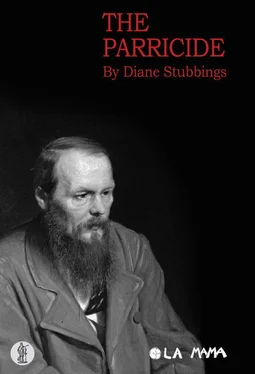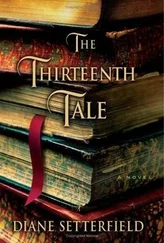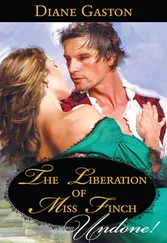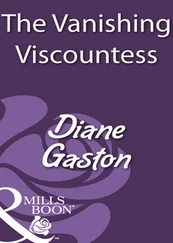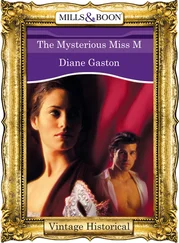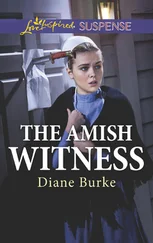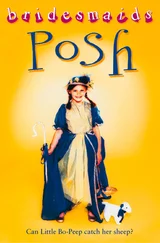A beat.
I have in my mind such a tale. A story that is everything I need to say. Of a parricide.
ANNA: You’ve told me.
FEDYA: I have?
ANNA: A little.
FEDYA: A mystery. Which of the father’s two sons was it who killed him? But they refuse to do my bidding. The sons. Refuse to act as I would have them act.
ANNA: Perhaps they know best.
FEDYA: Know more than me? Yes. Yes, perhaps they do. Only…
There seems to me now to be a third son—it becomes clearer and clearer to me—but I don’t know who he is—not yet. I don’t understand him—but he won’t let go of me—
My mind is filled day and night with nothing else—and whenever I seem on the verge of understanding, this piece of nothing I’m writing for Stellovsky pushes itself into my brain…
Minutes ago, when I walked into this room, it seemed to me to be teeming with life. Now it seems like nothing so much as a tomb—and all I want to do is run from it.
ANNA: Finish the little of Stellovsky’s book that is left to finish, then there’ll be nothing to do but write your parricide.
FEDYA: Will you help me? Will you stay?
ANNA: One book at a time, Fyodor Mikhailovich.
FEDYA: How many pages have we done?
ANNA: One hundred and sixteen.
FEDYA: Thirty-four to go.
ANNA: You write your books by the page?
FEDYA: If it’s what I’m paid by.
ANNA: You stop when you’ve reached the required number?
FEDYA: I see it looming and wrap things up as quickly as I can.
ANNA: I was beginning to wonder if you knew how to smile.
FEDYA: I even know how to laugh.
A beat.
FEDYA: Have you ever been in love?
ANNA: Is this another effort to laugh? Asking me about my love life?
FEDYA: Here’s something would make anyone laugh. I proposed to three women. After my wife died. None of whom, I see now, I actually loved. And all of whom said, No.
ANNA: What does it say about you, Fyodor Mikhailovich? Endless contracts and marriage proposals. Determined to lock yourself into one or the other.
FEDYA: I don’t know. What does it say about me?
ANNA: Sign no more contracts—and find yourself a woman who’ll love you—else you’ll do no more with your great book than flirt at its edges.
FEDYA: Have you ever been in love?
ANNA: I’m not sure that’s any of your/ business—
FEDYA: Have you ever been in love?
ANNA: When I was sixteen I was in love with the hero of a novel. Will that do you?
FEDYA: The hero of a novel? Well… what mortal man could hope to compete.
A long beat.
FEDYA: Some days, Anna—some days I feel I am the blackest of rebels…
I’ve had meetings with the students—
ANNA: Don’t,/ Fyodor Mikhailovich—
FEDYA: Have read their treatises and felt so sharp a desire…
There is something that was never known—never discovered…
Years ago. Before my arrest. I was involved in another group. A more secret group—
ANNA: Don’t—
FEDYA: Our sole aim was to provoke revolution—absolute revolution—in order to see the serfs freed. We’d have stopped at nothing. So dark was our anger. Had it been discovered then, I’d have been shot. Not a question asked. Even now, were it ever/ discovered—
ANNA: Please, Fyodor Mikhailovich. No more.
You should rest. You should rest.
I’ll go downstairs.
I’ll get you tea.
ANNA hurries away.
The shadows close in on FEDYA . He sees ALYOSHA.
As FEDYA speaks, ALYOSHA transtions into KARAKOZOV.
FEDYA: I must have retribution or I will destroy myself.
Why must it come only in some infinity of space and time? Why? I want to see it with my own eyes. The lion lie down with the lamb. The murdered man rise up to embrace his murderer. I want to be there when it’s finally revealed. What all the suffering has been for.
I don’t want to shake your faith. I don’t. I want you to shake mine. I beg you to…
A series of explosions.
The urgent banging of a broom-head from the floor below.
KARAKOZOV ’s room.
FEDYA and KARAKOZOV.
FEDYA: Who’s making these decisions?
KARAK: No-one.
FEDYA: Tell me. Let me speak/ to them.
KARAK: We have no leaders. We have no need of leaders. We’re equal—each of us finding our own way to bring the ideas/ to their proper conclusion.
FEDYA: Until you’ve destroyed everything. Then you’ll see how many leaders you have, all of them rushing over each other to step into the vacuum they’ve created.
KARAK: I don’t know who bombed the palace. I don’t.
I know it wasn’t me.
But if it had been?
If it had been my hand that lit the fuse?
Wouldn’t I have had just cause?
FEDYA: No—
KARAK: Wouldn’t you have had just cause, Fyodor Mikhailovich? Given what you suffered at the Tsar’s hands—?
FEDYA: It was a different Tsar. A different time—
KARAK: But the same system.
Men condemned to death. For saying what they think.
FEDYA: Everything will be lost.
KARAK: Then there was nothing worth keeping.
‘It’s the extraordinary man’s right—his duty—to allow his conscience to step over the obstacle of commonplace law in the execution of an idea. Moreso, if that idea involves the salvation of all mankind.’
Your Raskolnikov. In your Crime and Punishment . Taking up a hatchet and bludgeoning an old rogue to death. Determined to prove himself a man out of the ordinary.
Sitting in my freezing-cold room, despairing about what might be done? Your words struck me like a bolt of lightning.
FEDYA: Raskolnikov abandons that thinking.
KARAK: He abandons the idea he might be an extraordinary man—
FEDYA: You misread it—
KARAK: Not that an extraordinary man has the right to take the future in his own hands—
FEDYA: That’s not what I wrote—
KARAK: But if it’s what I read—?
FEDYA: Even the extraordinary man
KARAK: What we all read—
FEDYA: Must hold fast to the order of things
KARAK: Even if that order condemns us all—?
FEDYA: If Russia isn’t to collapse entirely—
KARAK: You don’t believe that—
FEDYA: With all my heart and soul.
KARAK: Be honest with yourself, Fyodor Mikhailovich. Why—truly—did your hero abandon his thinking?
Because you didn’t have the courage to see it through. Because you wrote your extraordinary man and you felt liberated by the power of him. But then you got scared. You got scared. You pulled back—wrote his demise—had him kowtow to God—to salve your guilt. But it’s the truth of his ideas that shine through—and will keep shining through—like fire through fog—no matter the end you contrived for him. And you’ll go on writing him, this hero, until your last breath, until you dare to acknowledge aloud the truth. That sometimes a great idea needs to be forced into being. That sometimes it’s the way the world is ordered that demands we strike against it. That demands we set aside God’s creation and build our own.
I learned that. I learned that at your knee as I read your work.
Surely there is here among us at least one extraordinary man.
FEDYA at the roulette wheel. A restless MITYA troubles FEDYA ’s imagination.
MITYA: Drip. Drip. Drip.
Just throw it all on and finish it.
FEDYA: It’s not how it’s done.
MITYA: How is it done?
FEDYA: Rigid calculation.
MITYA: Of what?
FEDYA: The past. The future.
Play coolly. Calmly. One reckoning at a time. And it’s impossible to lose.
Читать дальше
